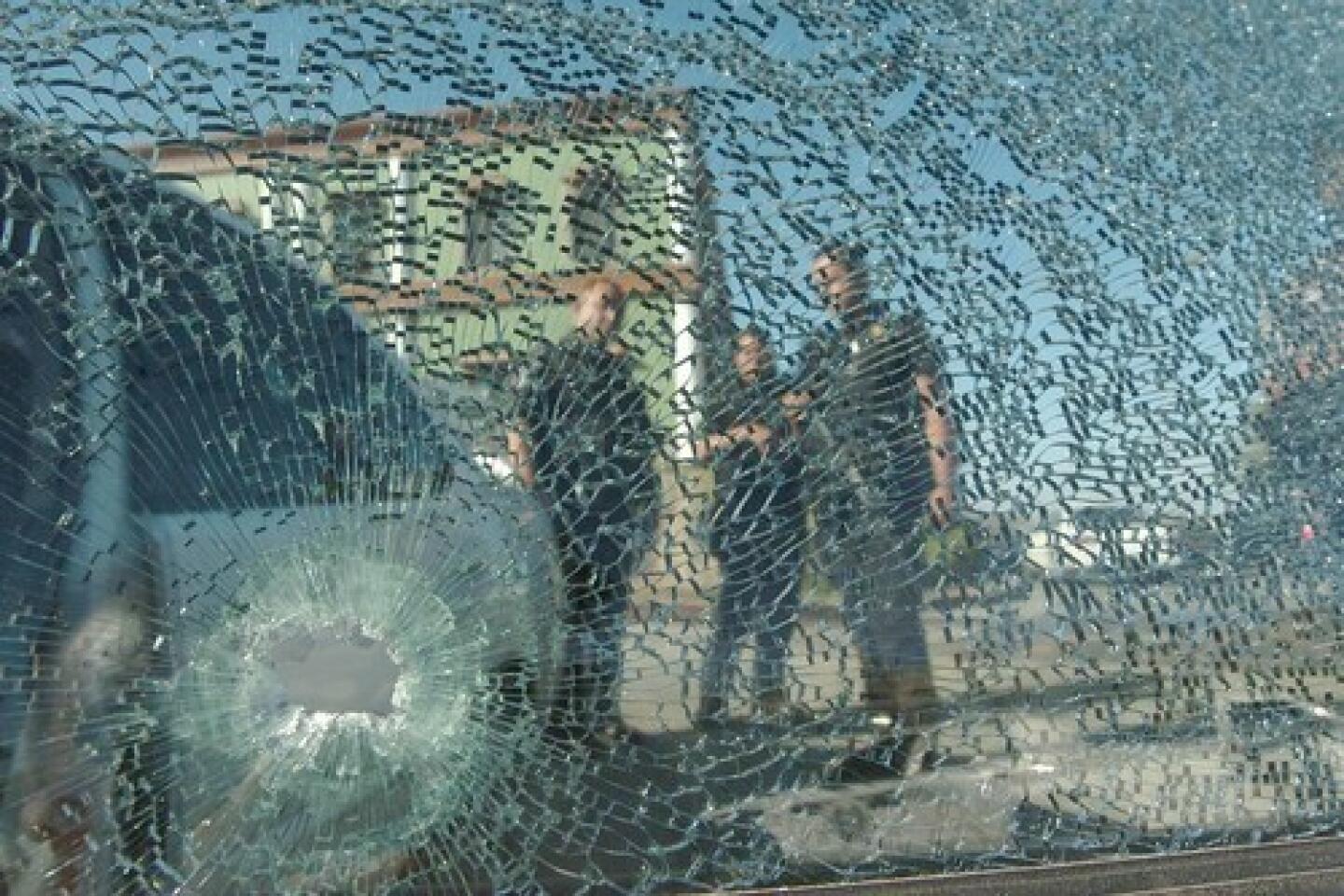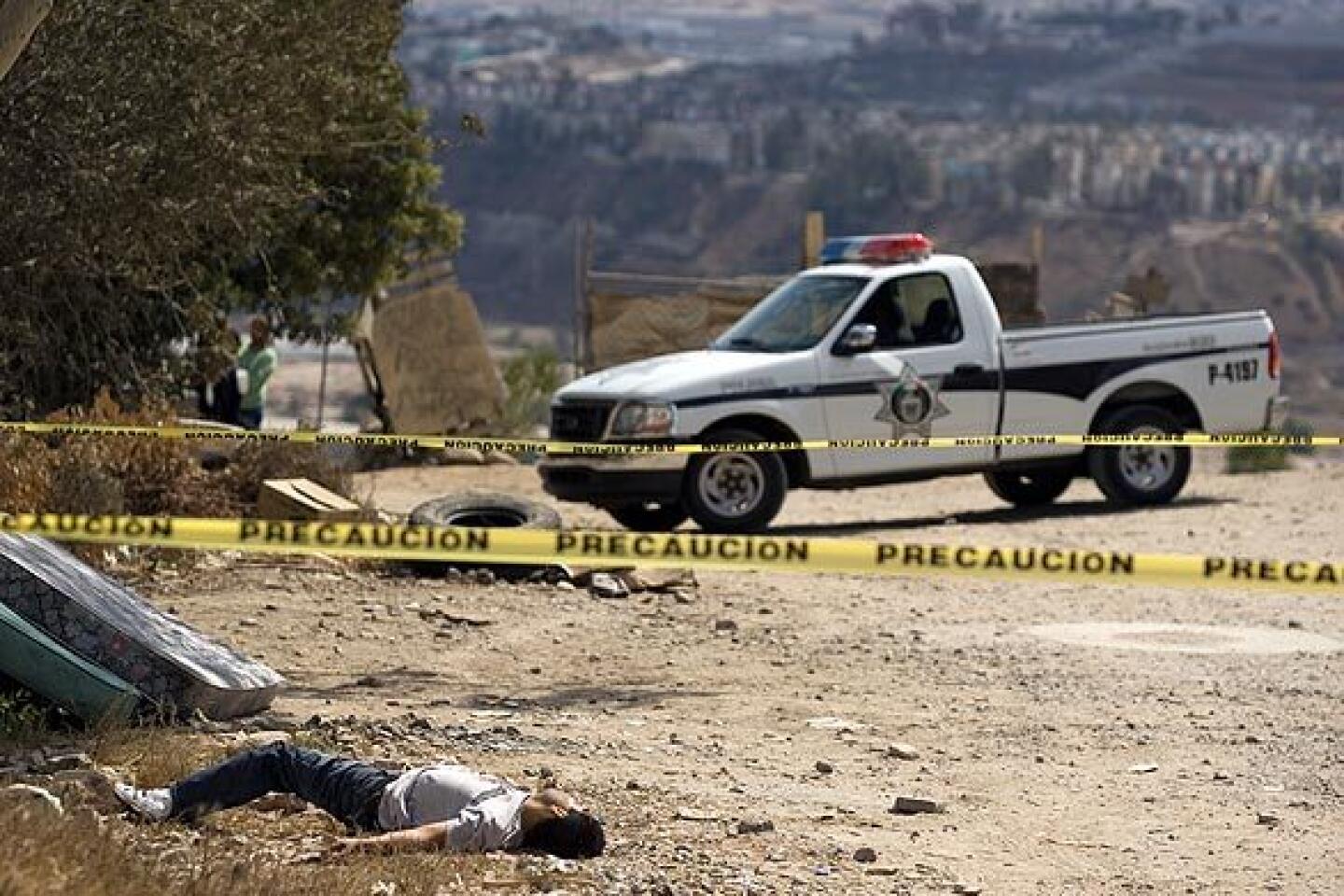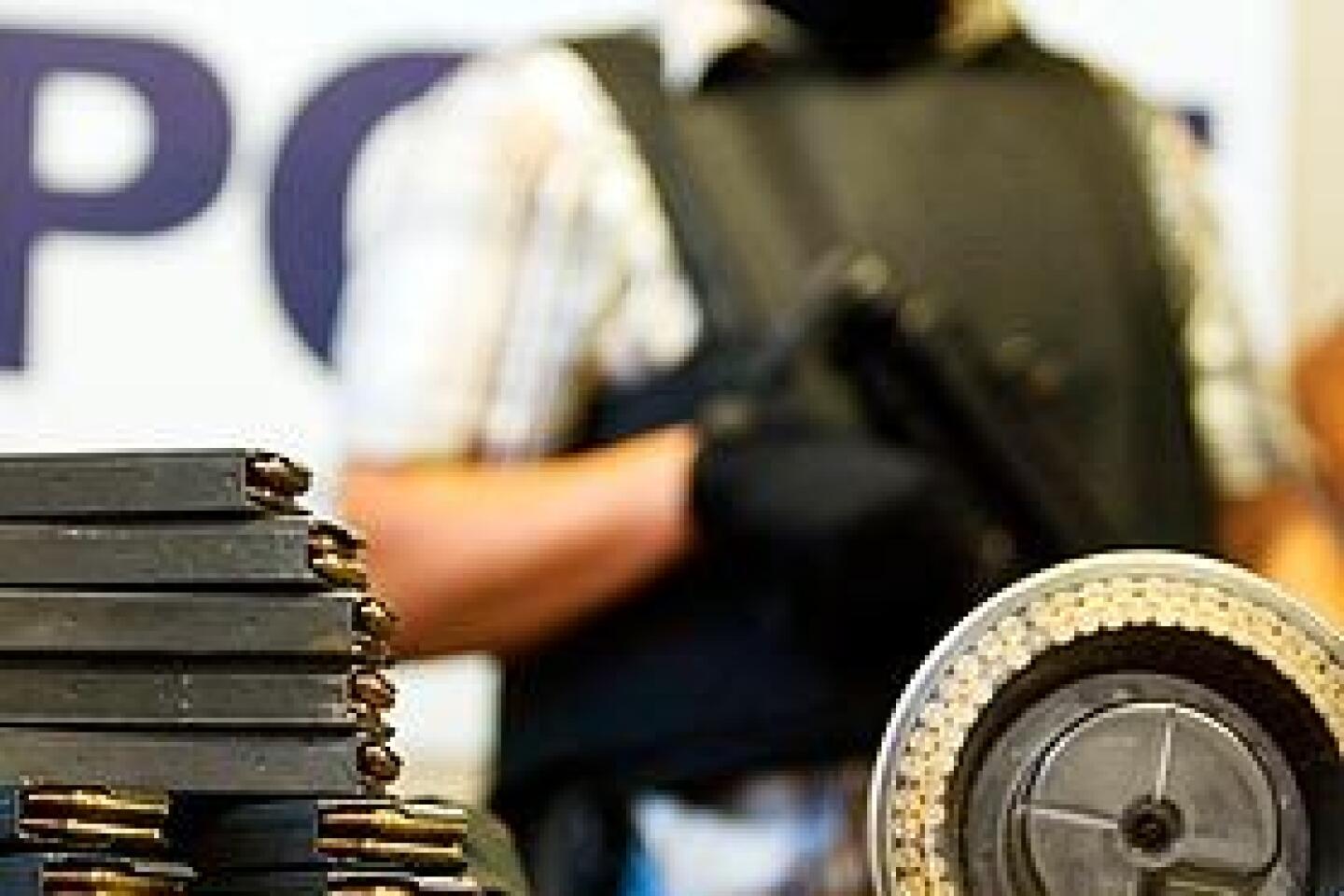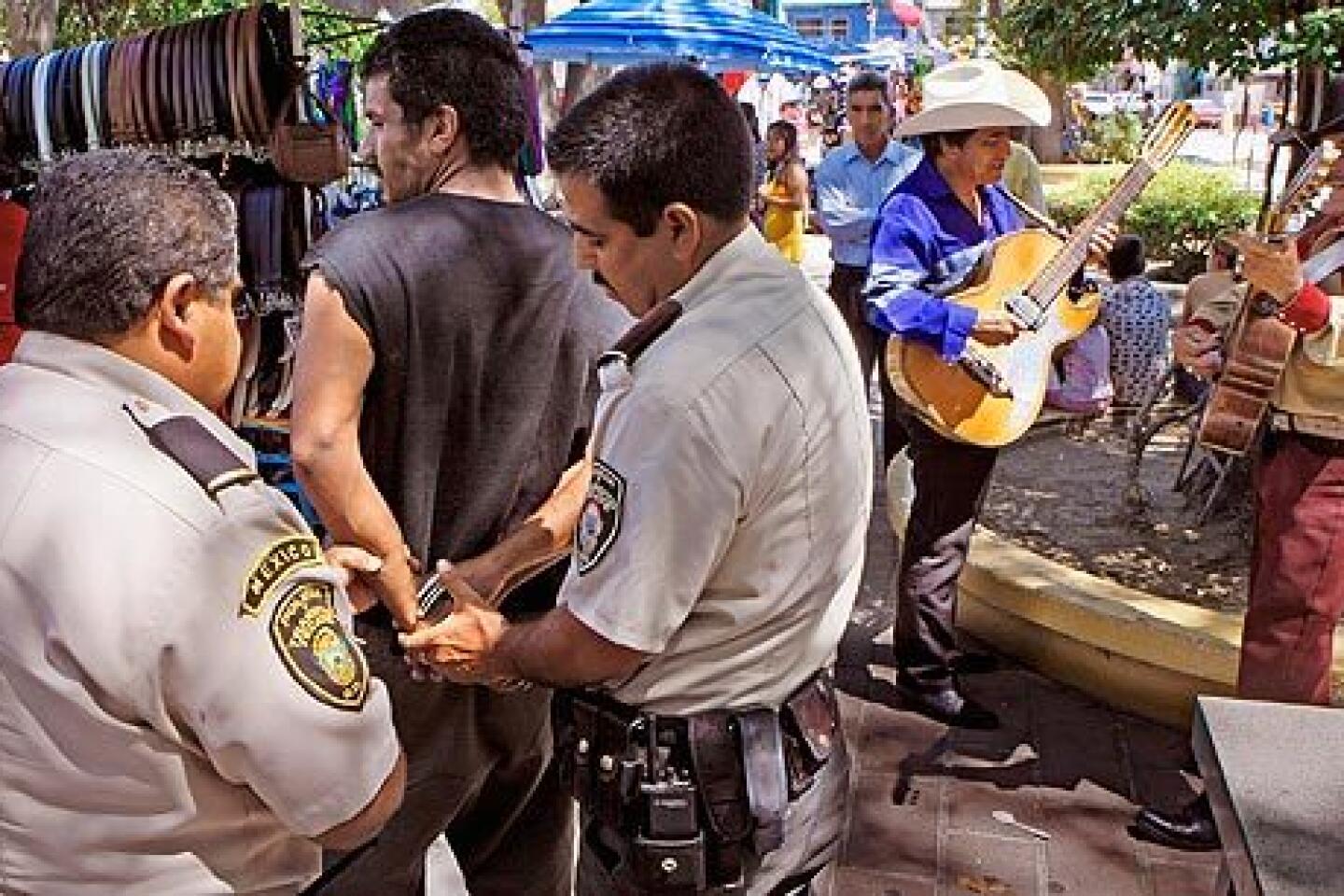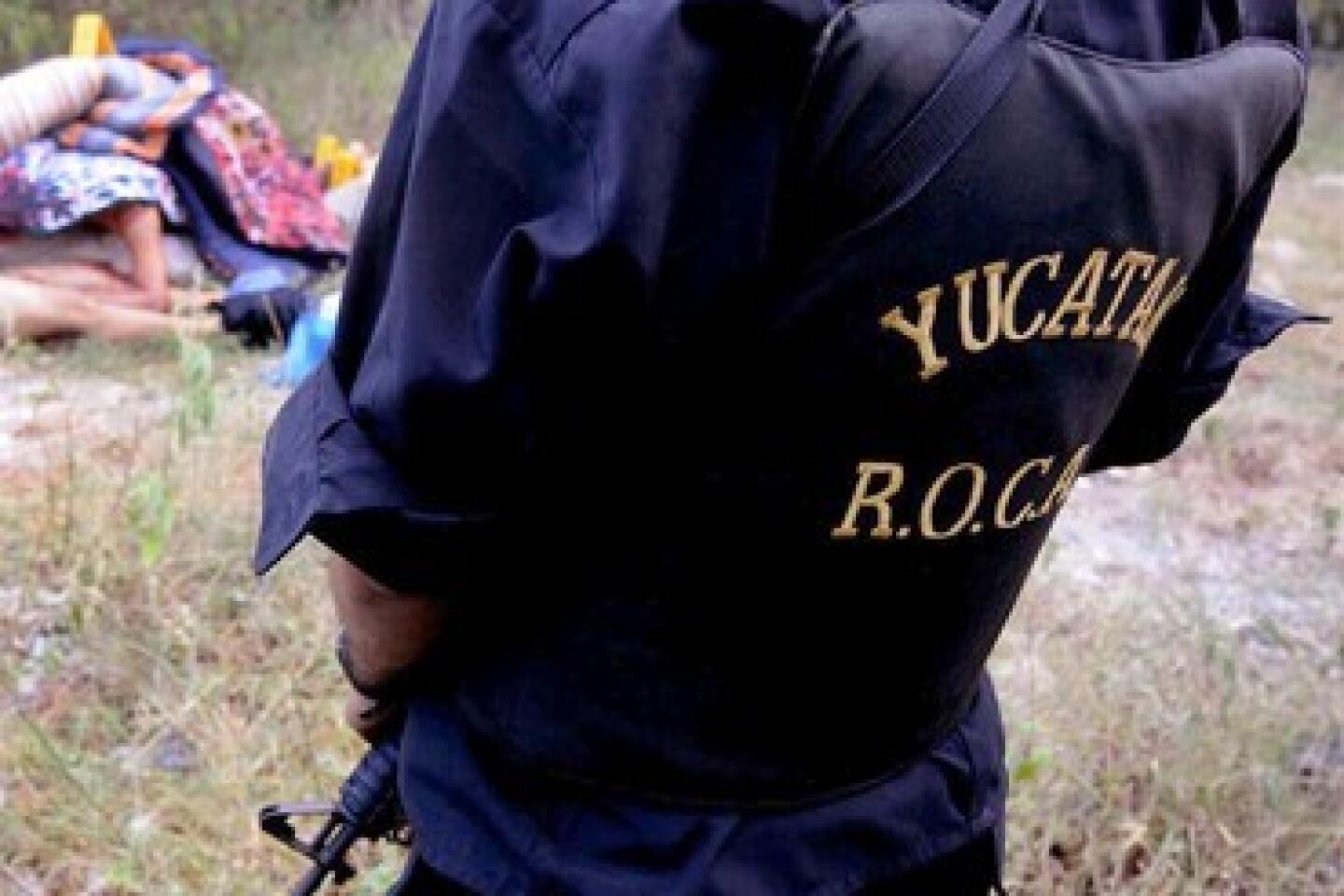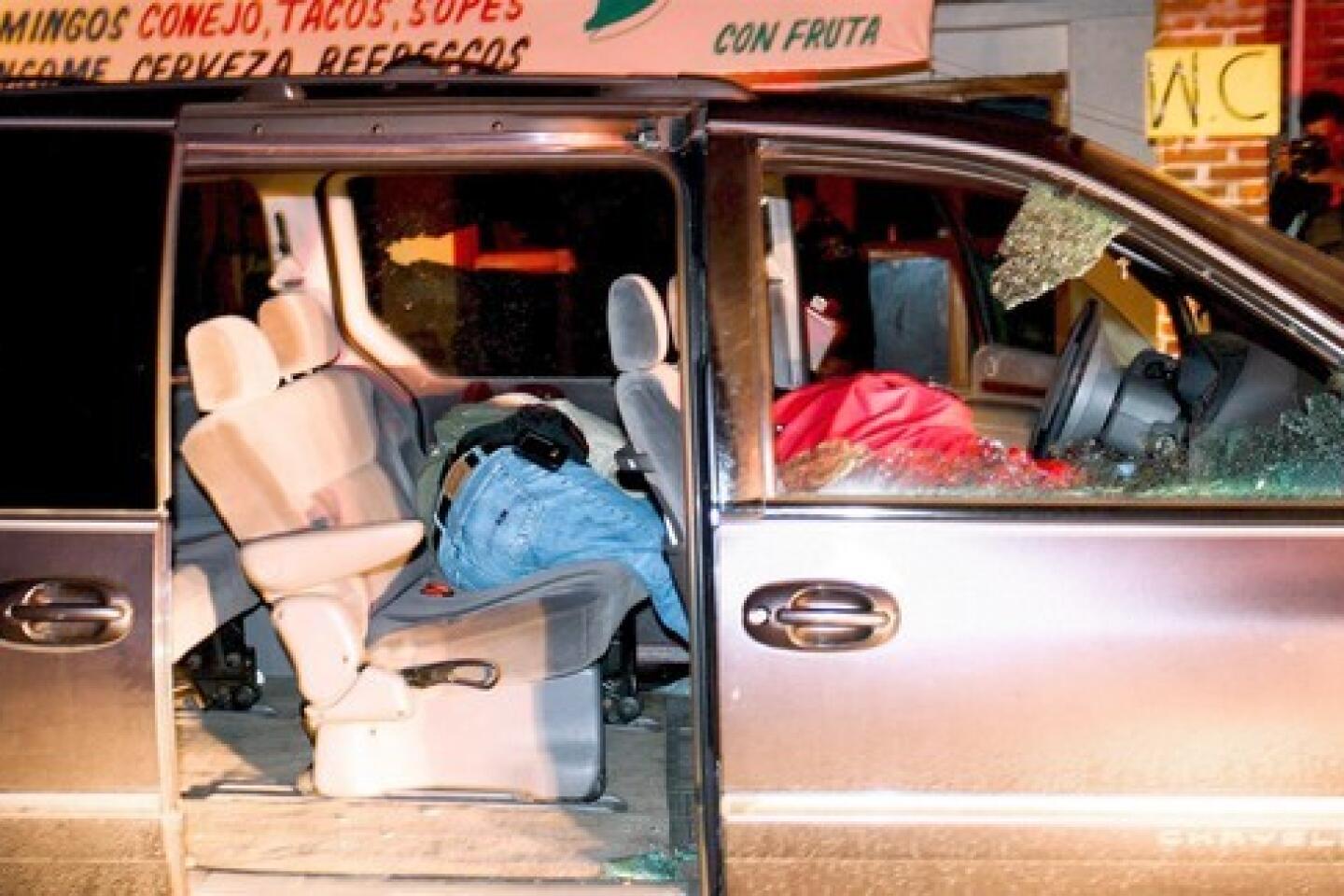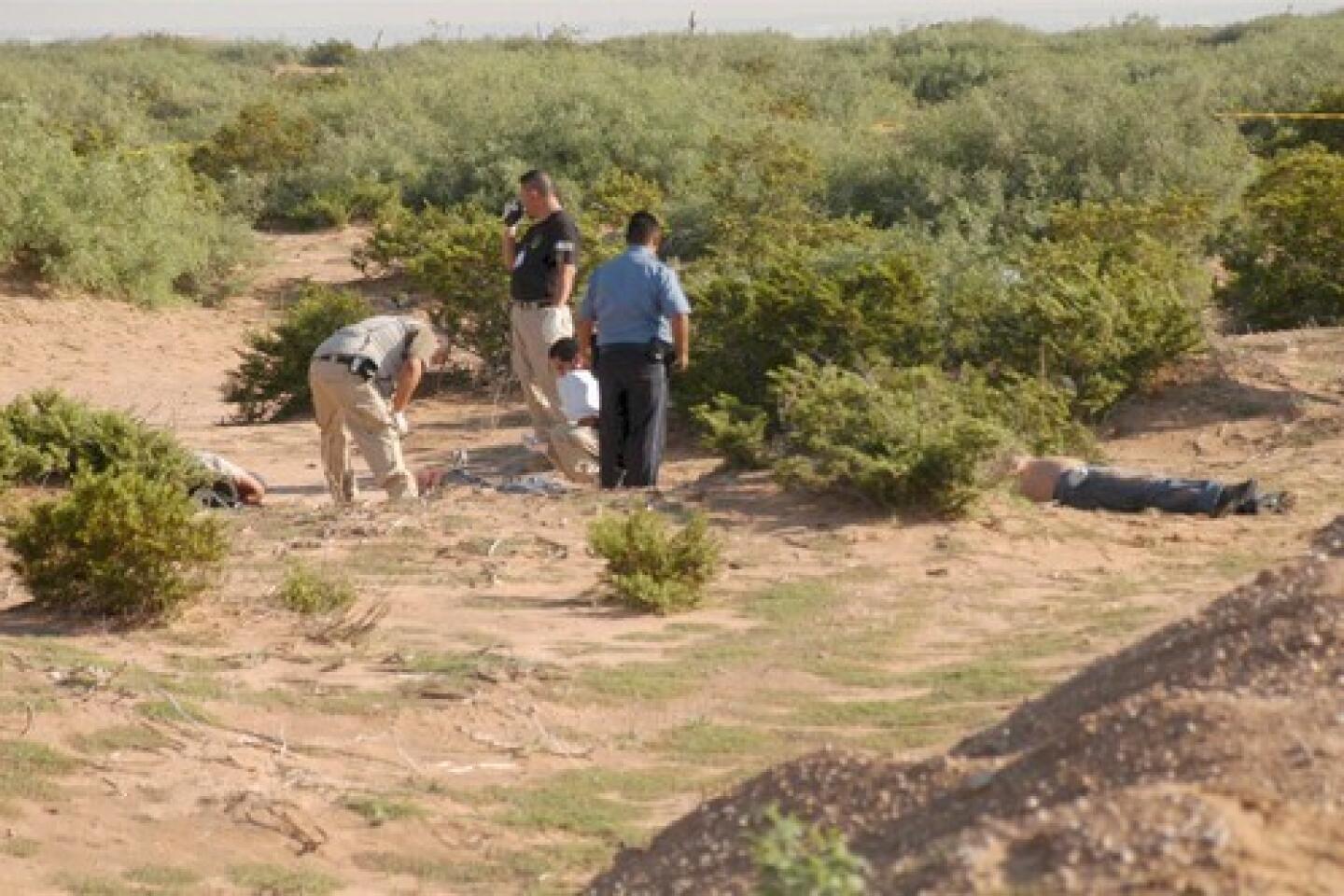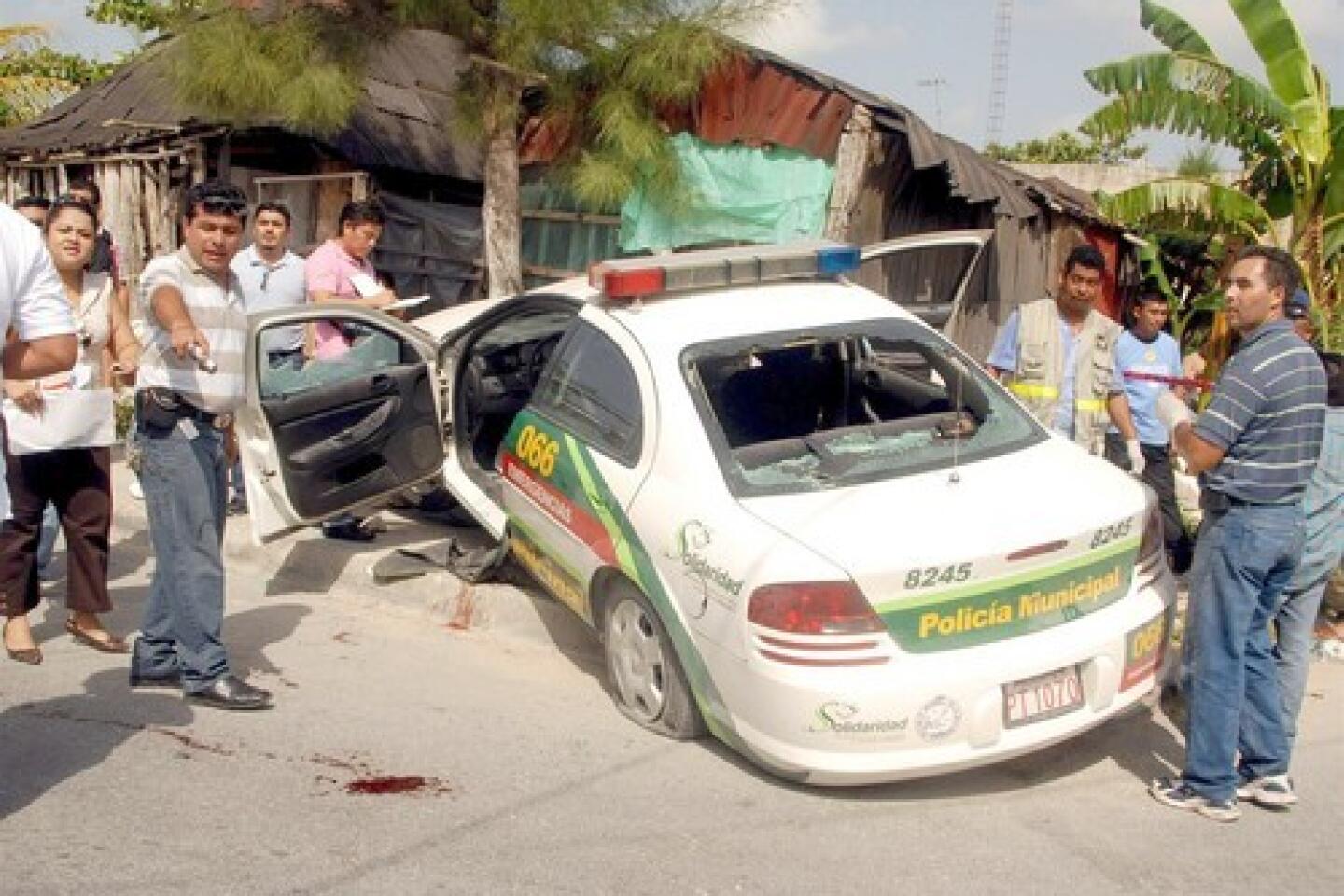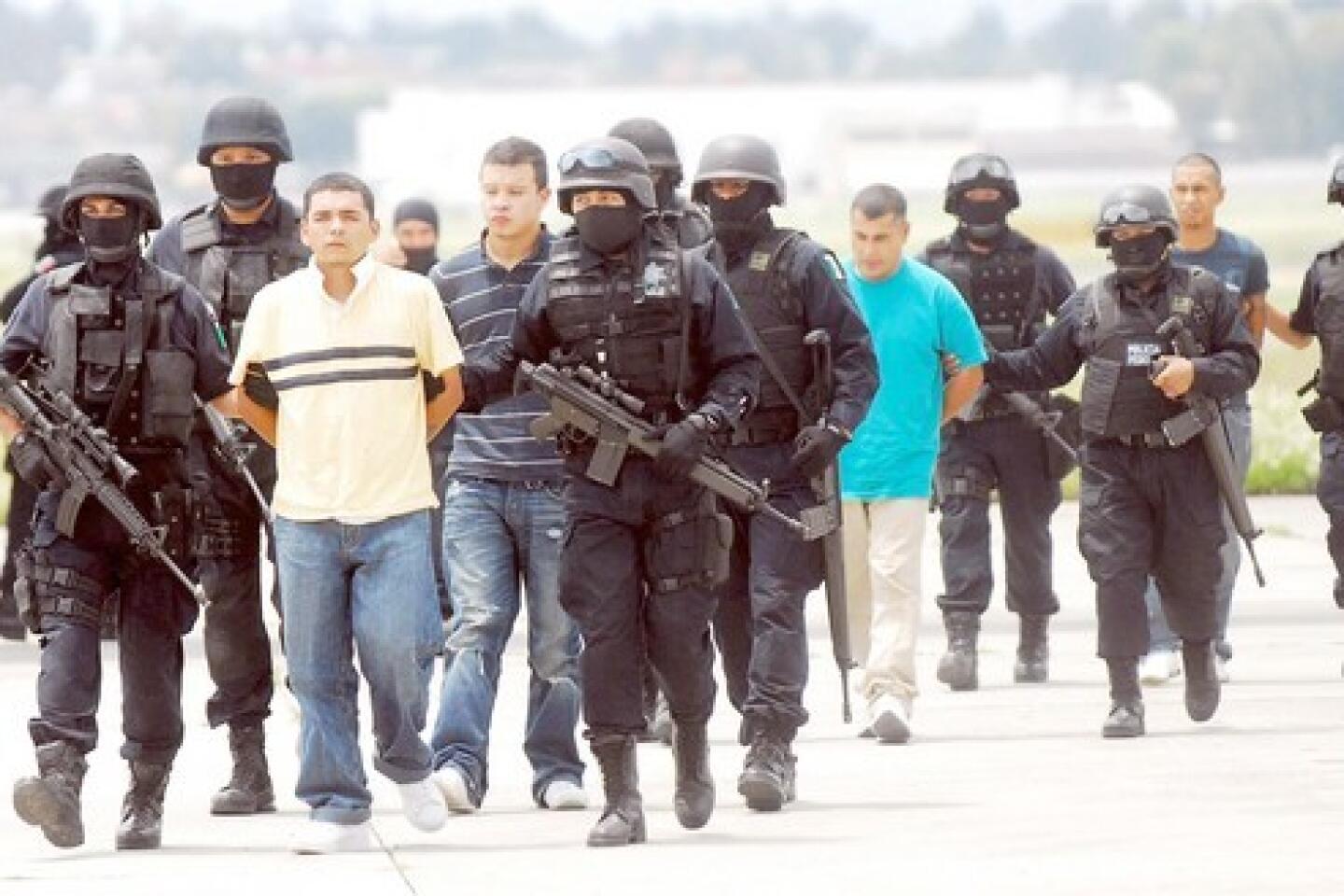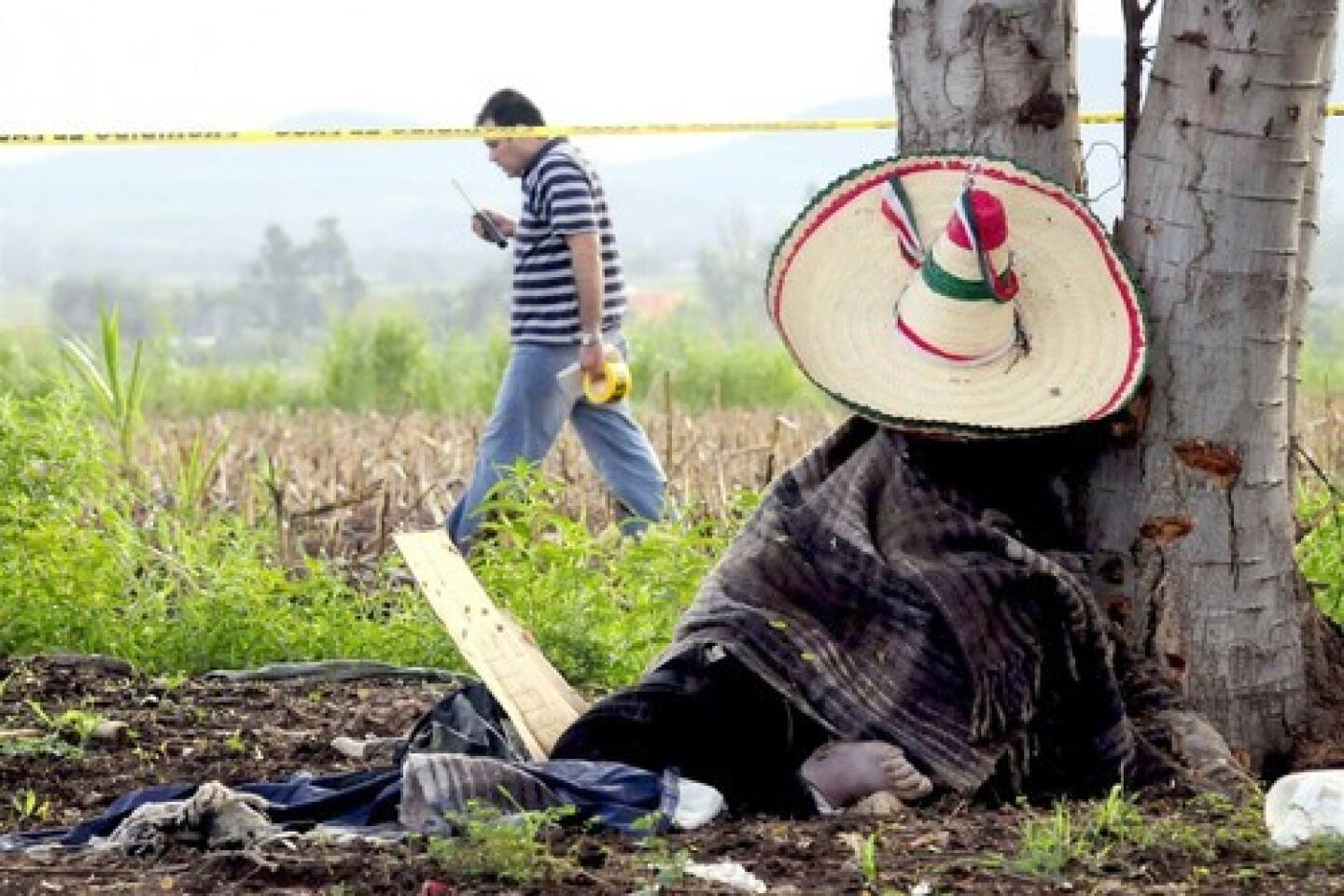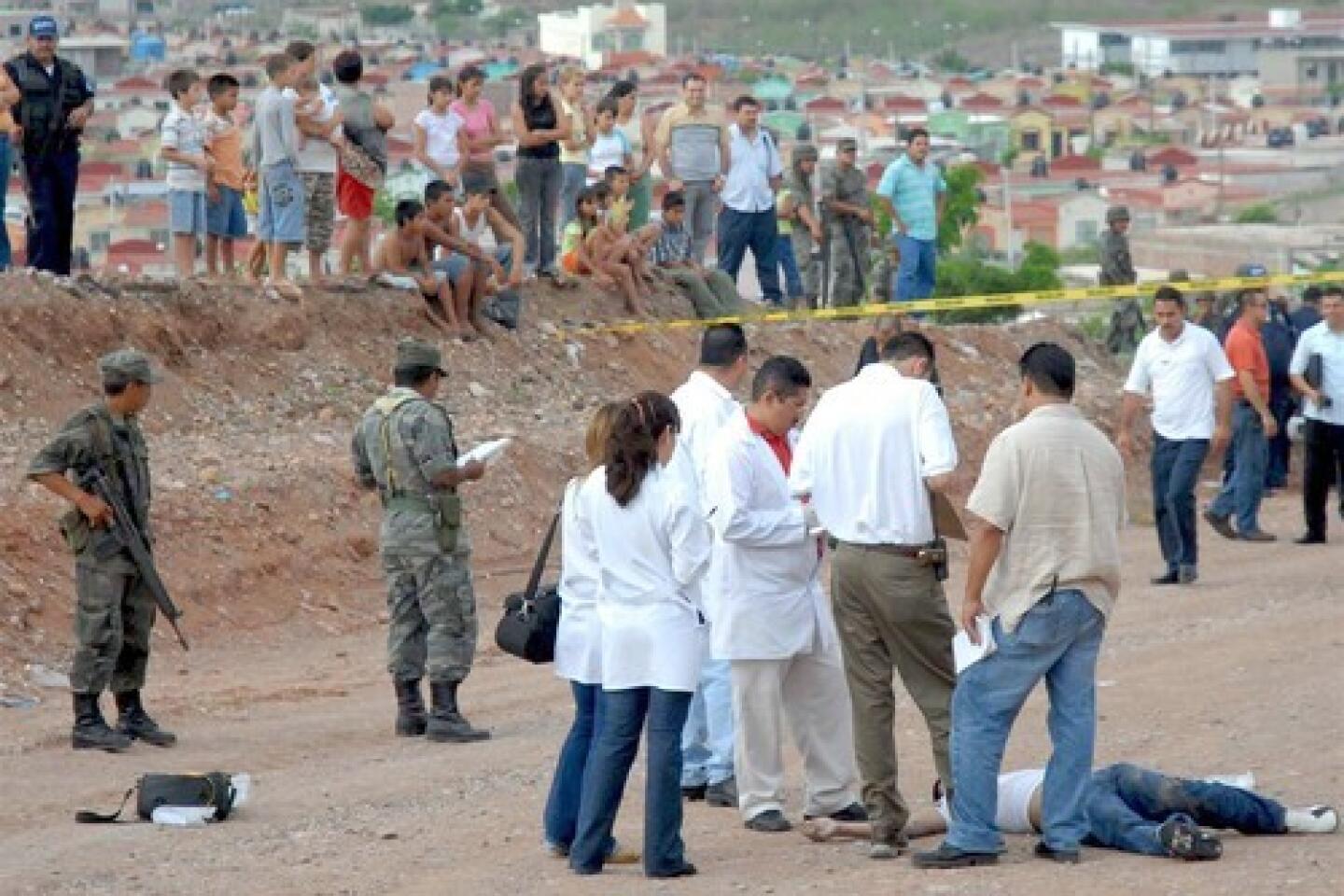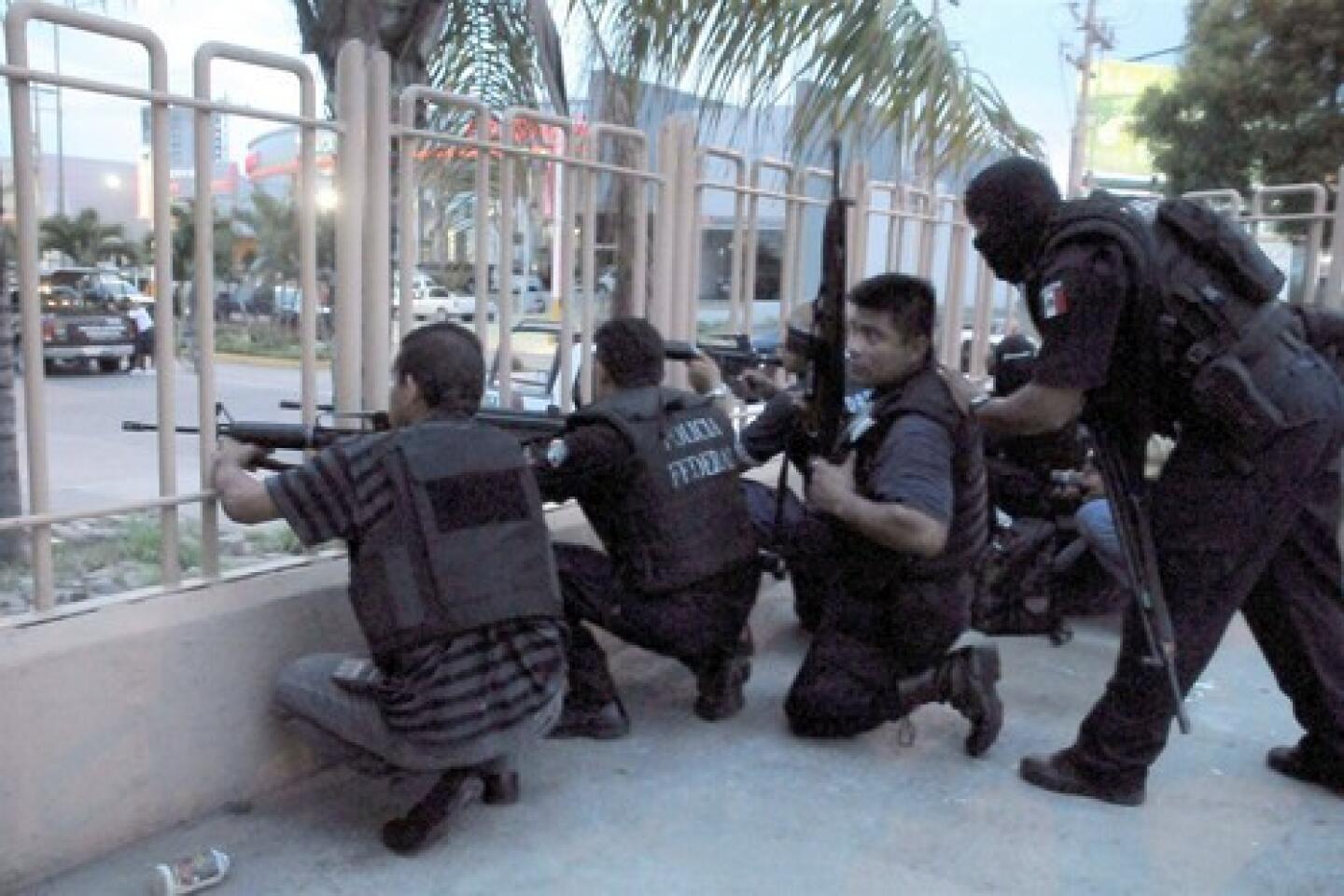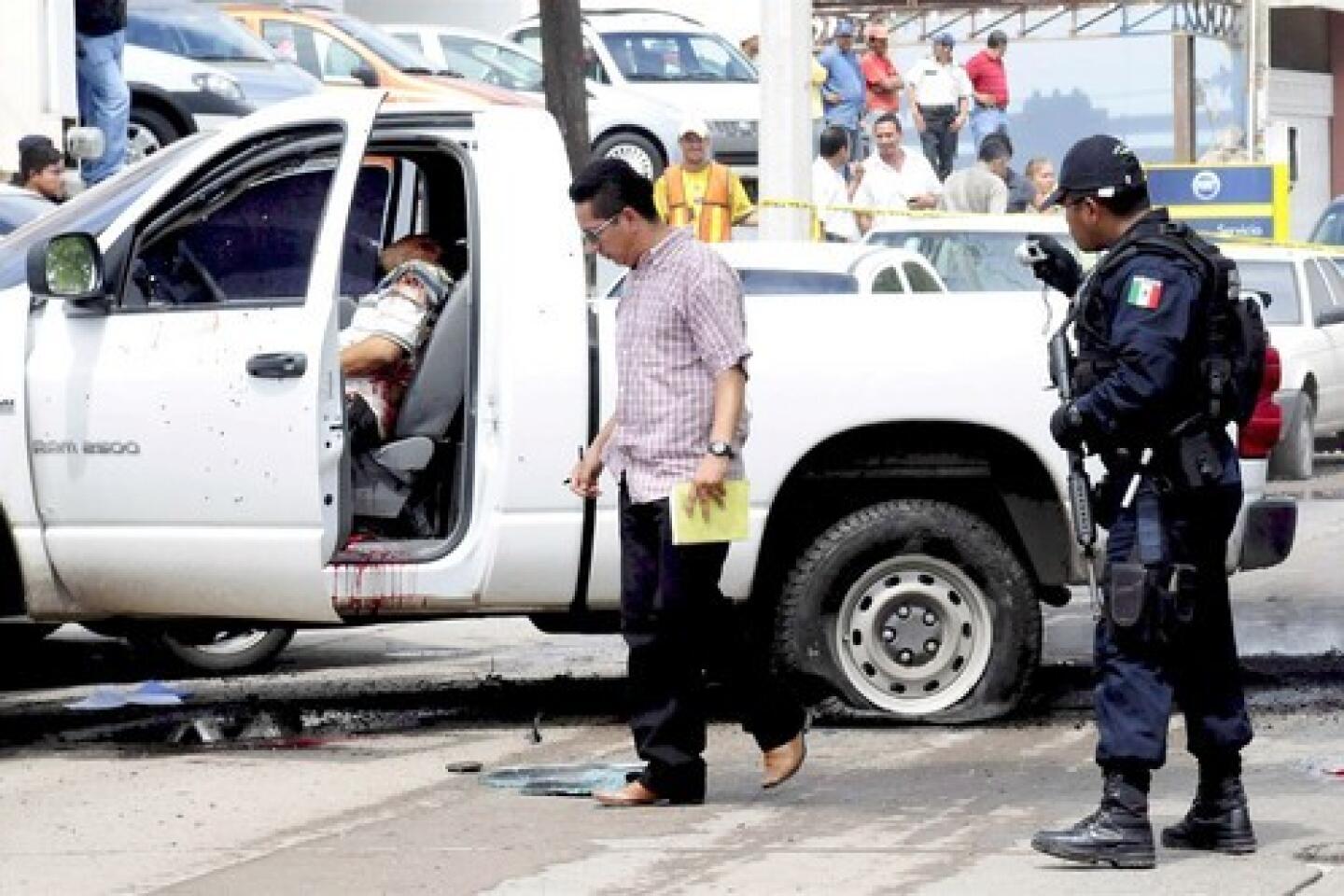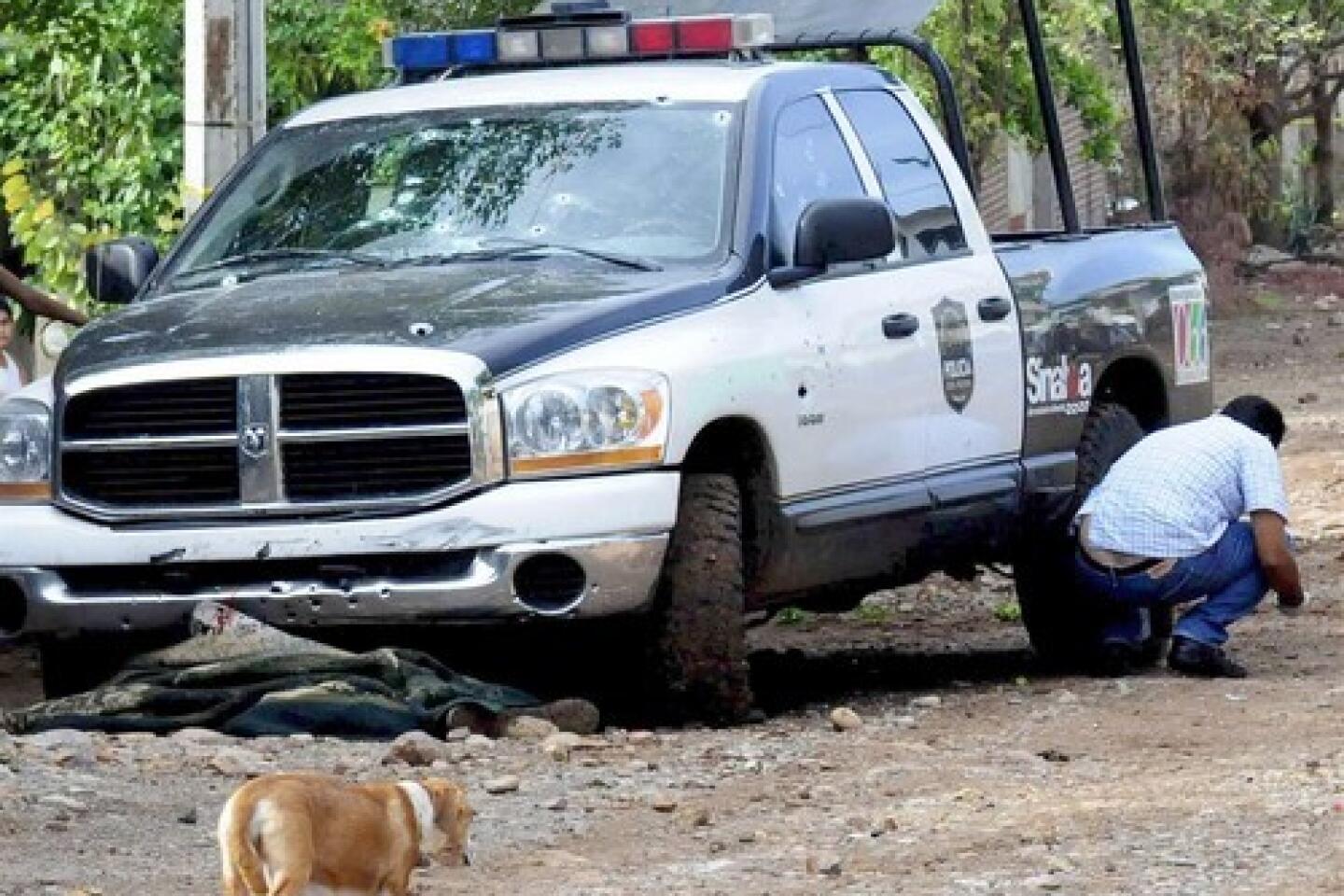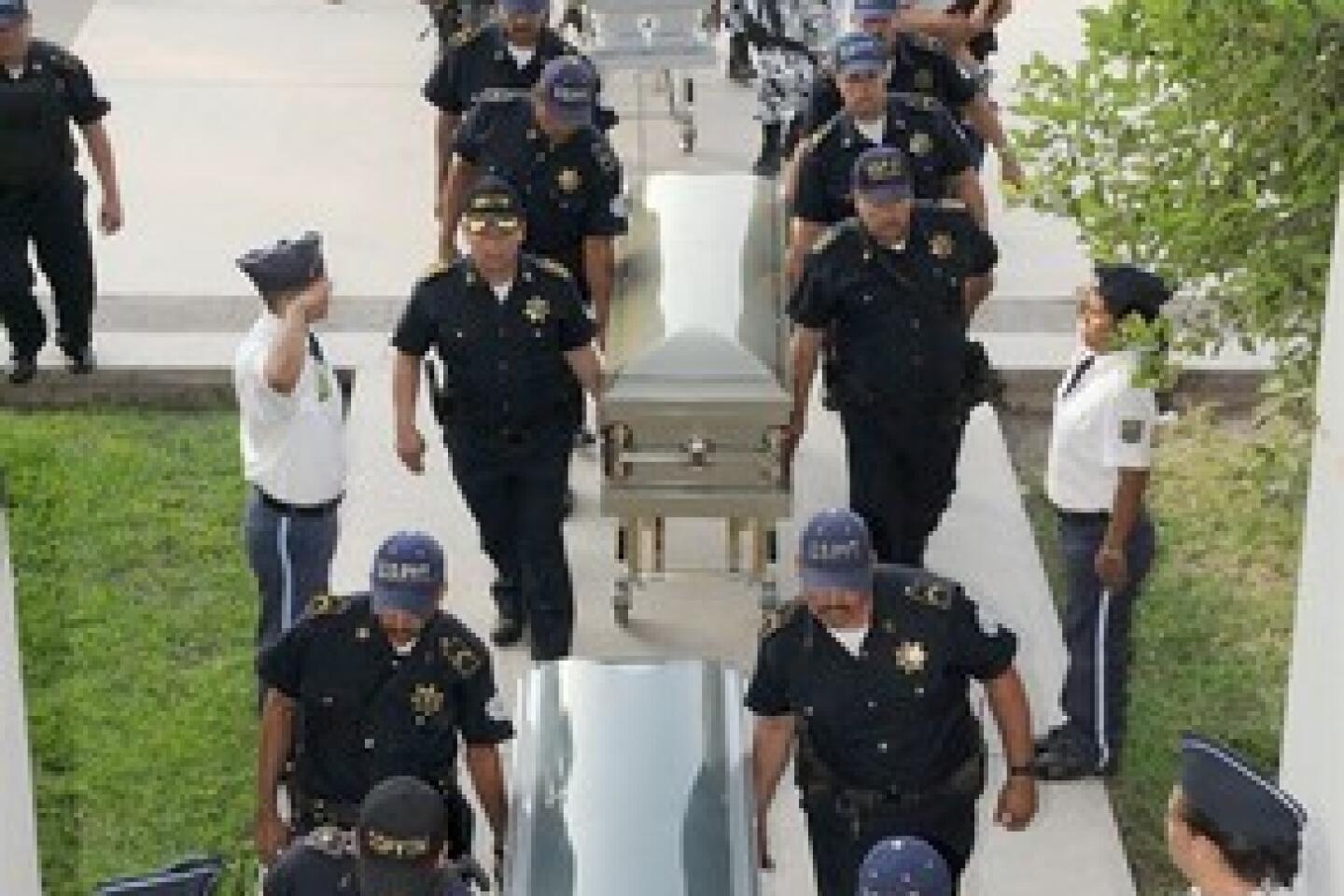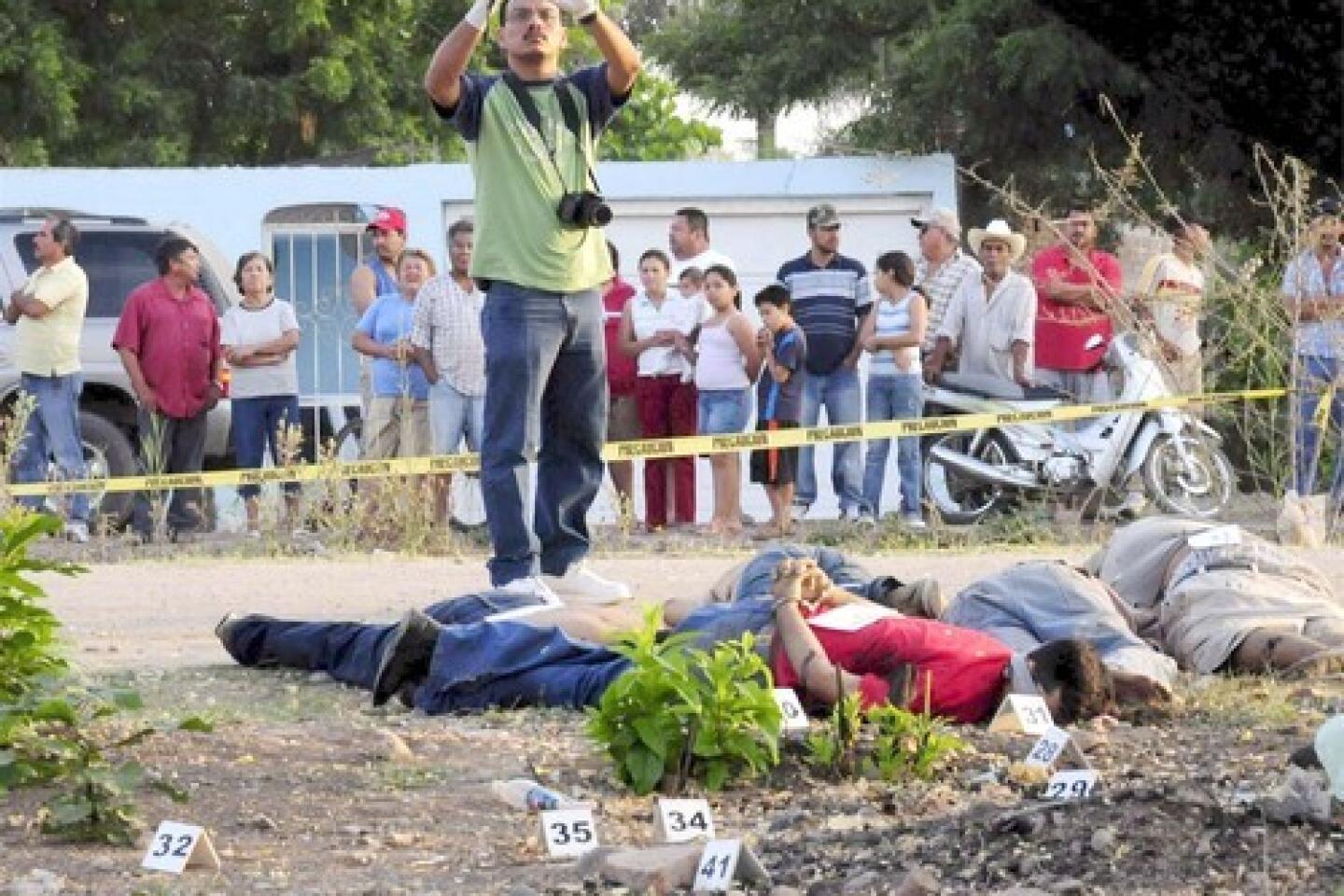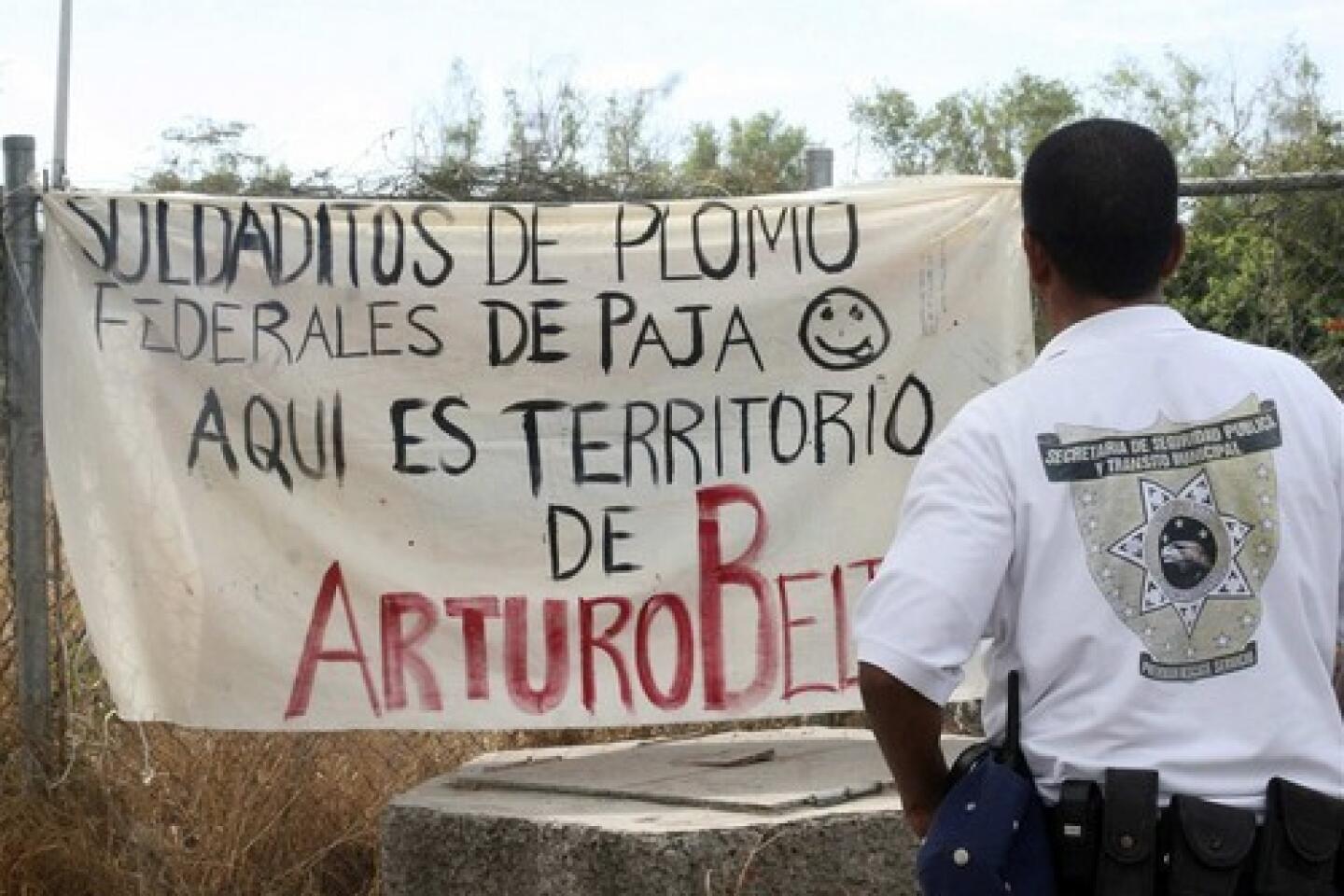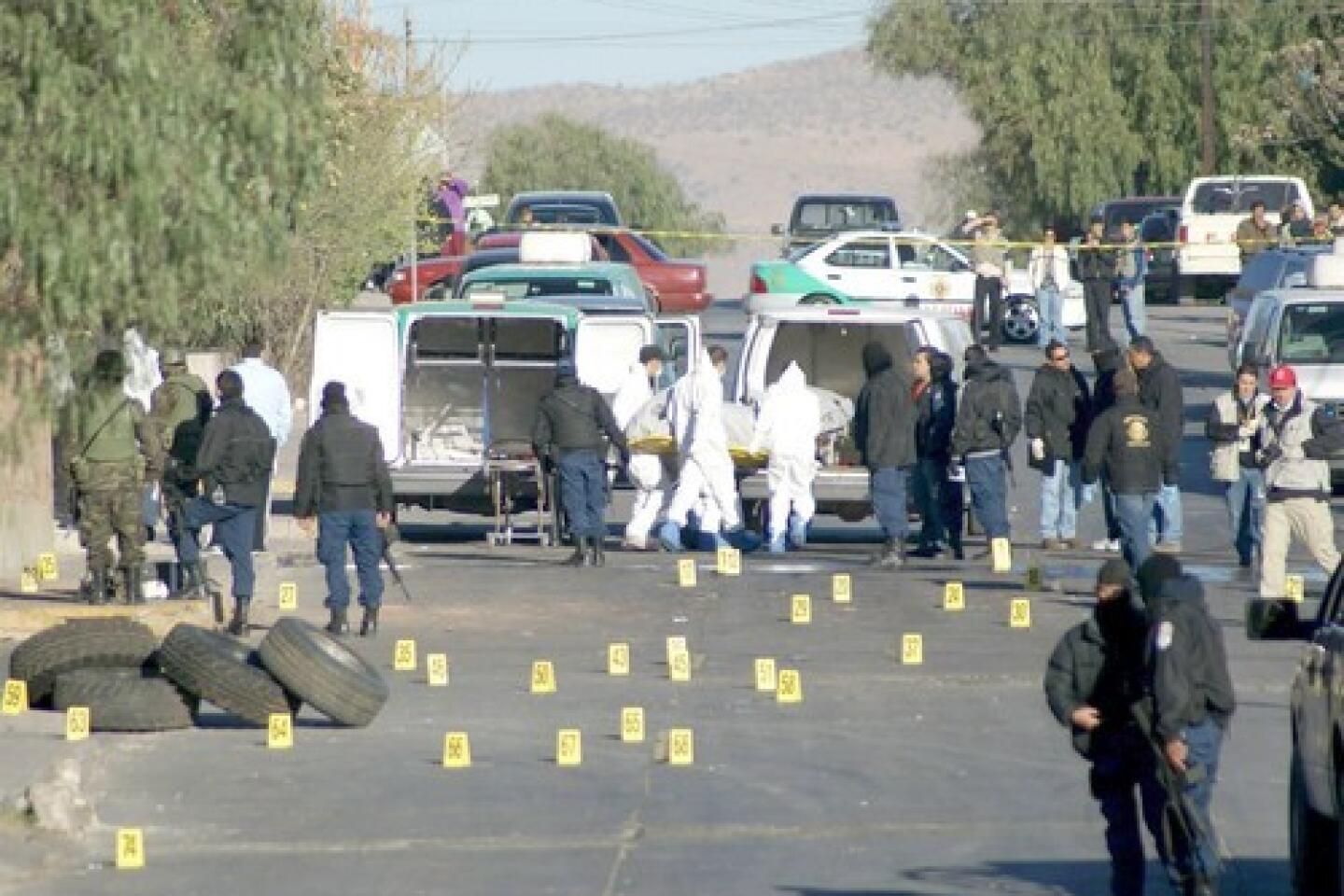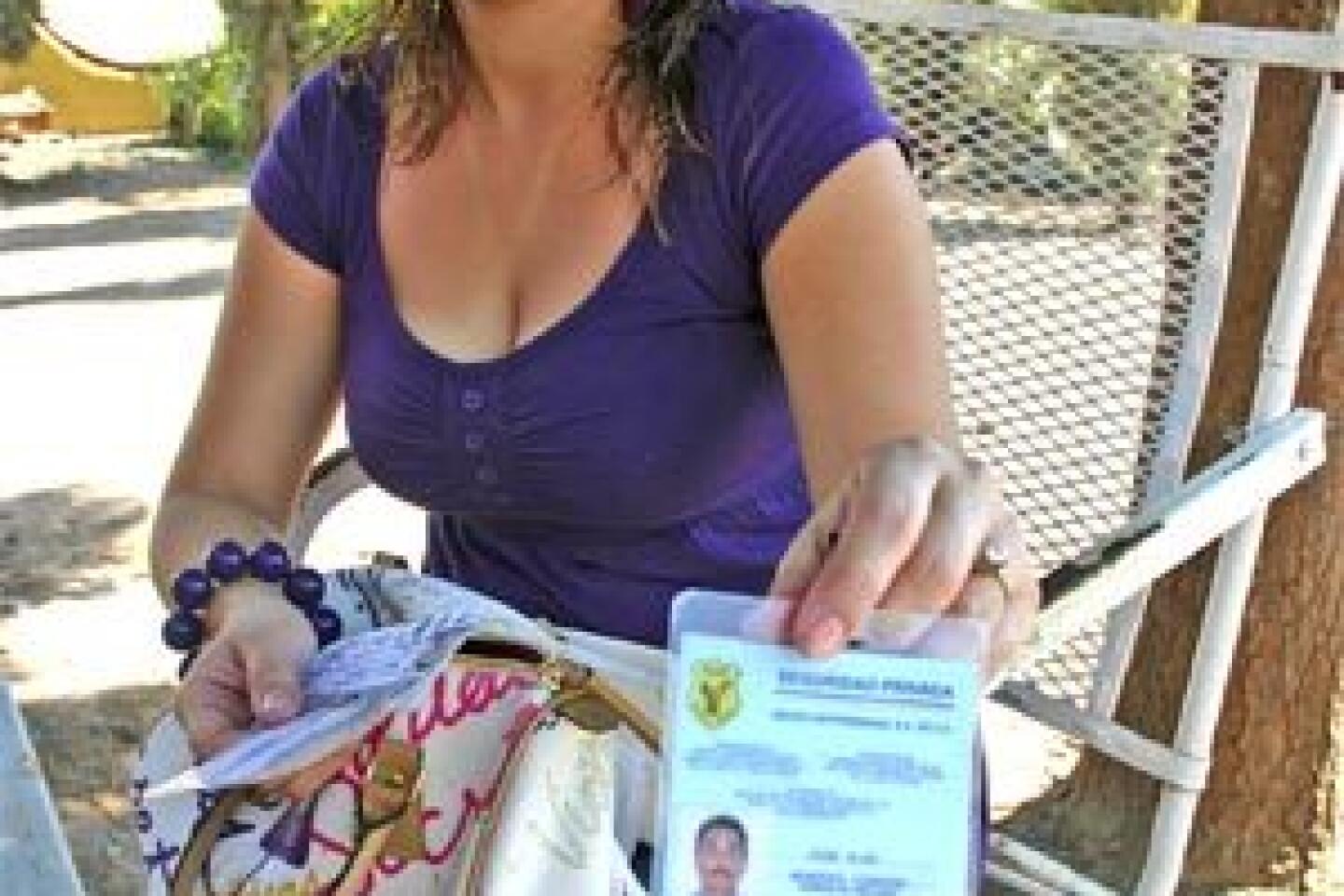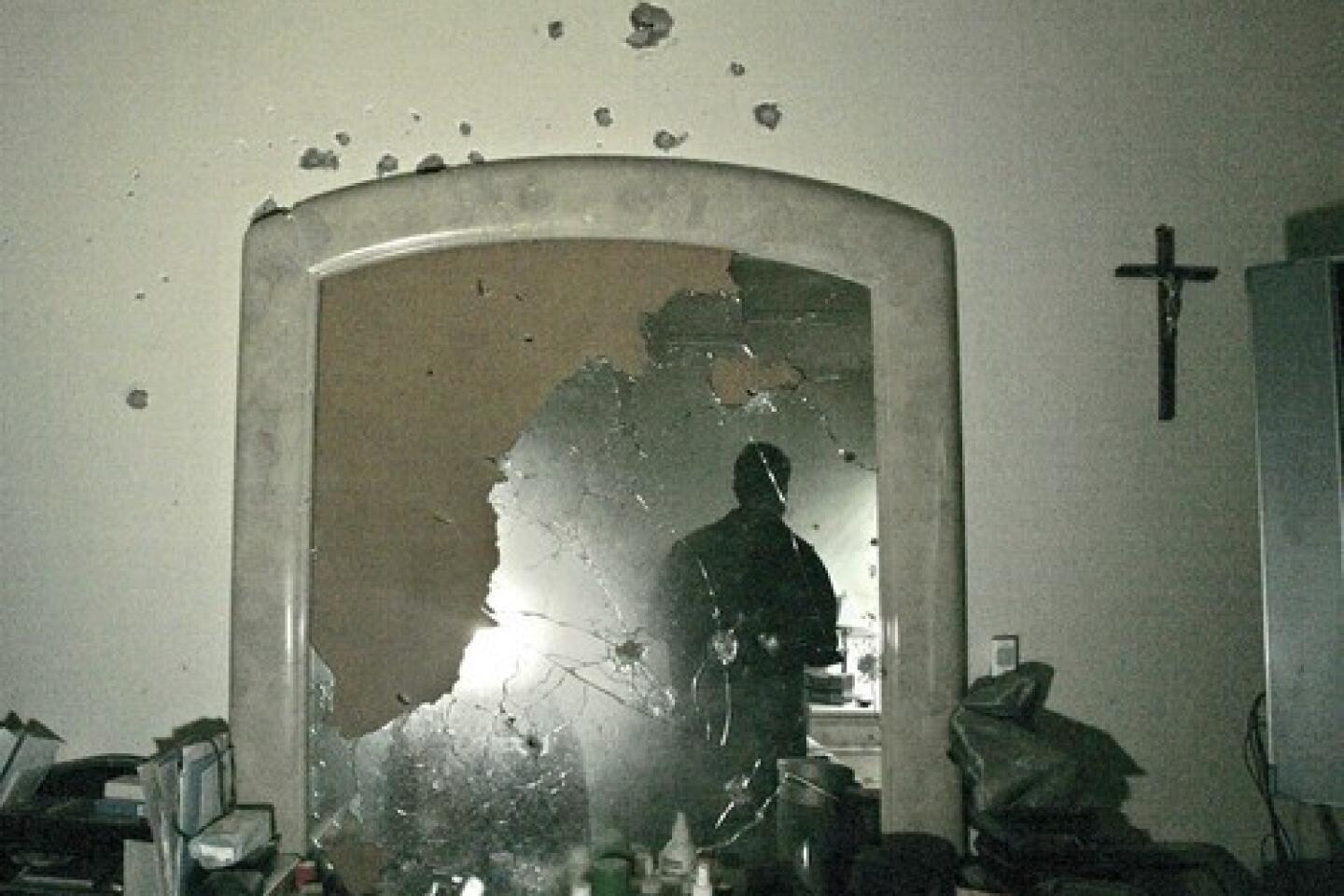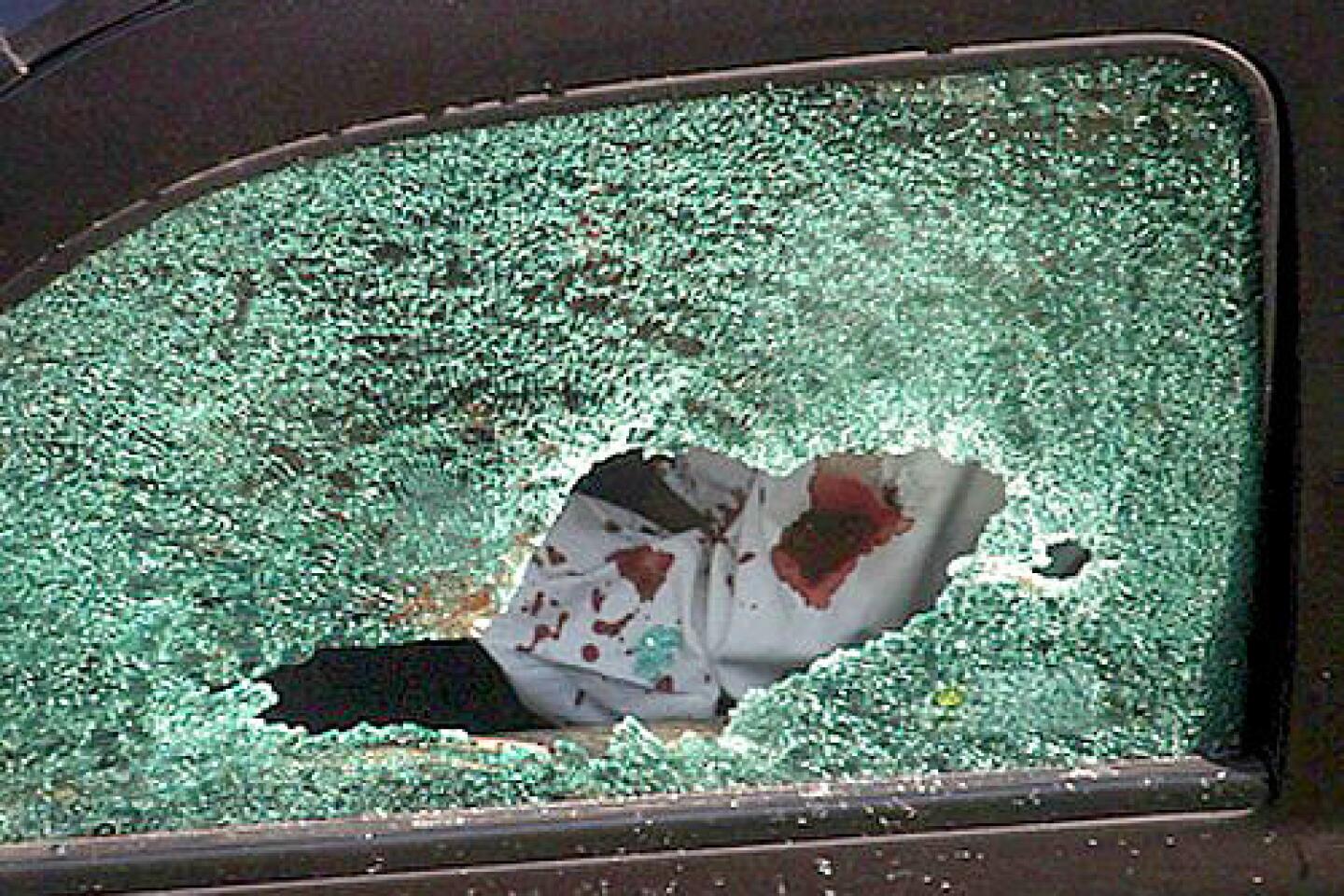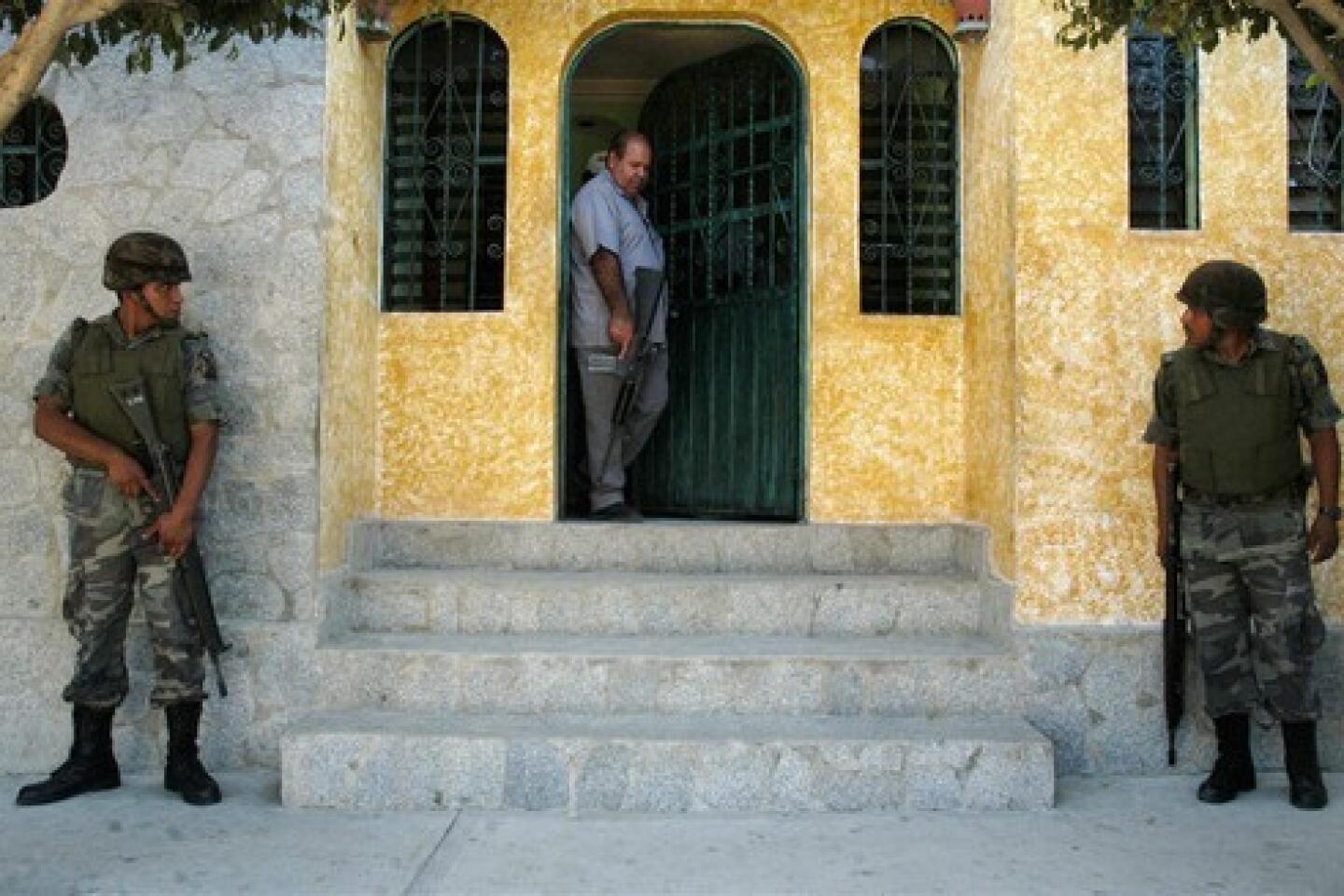12 decapitated bodies found in Mexico’s Yucatan peninsula
- Share via
MEXICO CITY — In a sign of the spreading violence in Mexico, 11 decapitated bodies were found late Thursday near the colonial city of Merida on the Yucatan peninsula, officials said.
The bodies bore signs of torture and some were unclothed. Yucatan state officials said a 12th decapitated body was found later about 120 miles south of Merida, a city that is often used as a tourist gateway to the famed Maya ruins at Chichen Itza.
Warring drug gangs have routinely decapitated rivals during the last two years as they battle for coveted routes for smuggling drugs into the United States.
Four decapitated bodies were found in Tijuana this week, killings that appeared to be linked to fighting among traffickers over control of the corridor into San Diego.
Headless bodies also have turned up in other corners of Mexico as violence has spread beyond traditional battlegrounds along the U.S. border.
The website of the newspaper El Universal said the bodies found in Yucatan were handcuffed and showed signs that they had been beaten. Reuters news agency, citing unnamed police officials, reported that the bodies were marked with star signs and tattooed with the letter Z.
State authorities said they were alerted to the bodies by an anonymous phone call. The discovery prompted an emergency meeting of the state’s governor, Ivonne Ortega, and top security officials.
The Yucatan peninsula has seen scattered violence but had not been a scene of severe fighting between drug-trafficking groups.
Drug-related violence in Mexico has grown more savage amid a crackdown on traffickers by the government of President Felipe Calderon.
This year, more than 2,500 people have died in drug violence, according to unofficial tallies by Mexican news organizations.
The government’s campaign has disrupted traditional smuggling arrangements and aggravated rivalries among gangs seeking to keep their piece of the lucrative U.S. drug market.
More to Read
Sign up for Essential California
The most important California stories and recommendations in your inbox every morning.
You may occasionally receive promotional content from the Los Angeles Times.
